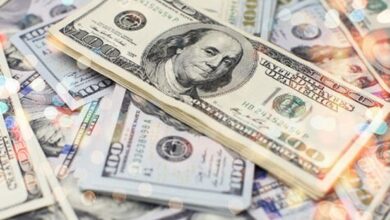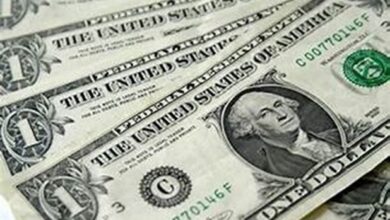In a bureau de change on Tahrir Street in Dokki stands a young man. He asks the teller, “How much is the dollar today?” The teller tells him, “How much do you have?”
In the seconds between the two questions lies the dollar exchange rate crisis in Egypt.
You do not have to be an expert to notice that the difference between the official rate at banks (LE7.18) and the black market rate (LE7.80) is huge.
Why is there a crisis and how can it be resolved?
The reason we are told is that before the banks closed for nearly two weeks for security reasons after the 25 January revolution, the cash reserves at the Central Bank stood at US$36 billion. After Mubarak was ousted the Central bank allowed people to buy US dollars from banks easily, as a reassurance measure by the military council.
Experts say that, although that decision had its political justification, it was economically wrong because it pulled down the cash reserves to $23 billion. Of Course, this was not the only reason. Add to it the decline in tourism and foreign investments, which are important sources of hard currency.
And recently, our dollar reserves were affected again by the tension in Egyptian-Qatari relations. Although we received a non-refundable one billion dollar grant from Kuwait, the Egyptian government decided to return a deposit of $2.5 billion to Qatar. Add to it that we paid in one year some $1.5 billion in debts to foreign oil companies operating in Egypt.
All of these factors took from our cash reserves, which now stand at $15.8 billion, half of what we had before the revolution. Also, international prices of goods had gone up.
But Bassent Fahmy, a professor at the Arab Academy for Banking Sciences, has a different point of view. “This is nonsense,” she says. “We had a flow of funds in the early days of the military council, most notably the remittances of Egyptians abroad which were estimated at $46 billion, as well as many grants. Where did this money go?”
“The Qatari money you are talking about was a deposit, and deposits do not come under cash reserves,” she explains. “A cash reserve is what you use for paying external debts and buying raw materials and food.”
“The sad truth is that the cash reserves fell because the money was siphoned abroad,” she claims. “Who smuggled it?”
Omar al-Shanity, an economist, says, “We have always had dollar crises, but the difference between the official and the market rate is still under control,” explaining that the Central Bank regulates the market and intervenes to control the rate before it soars too high.
An official at the Central Bank responsible for following-up on bureaux de change, who requested anonymity, says any bureau not conforming to the announced rate is immediately reported to the police.
He adds that bureaux de change collect dollars from the market and resell them to investors, which definitely hurts the national economy.
Meanwhile, Al-Masry Al-Youm on 27 December published a statement on the front page by a source at the Central Bank, saying that the Central Bank governor will determine a date to unify the exchange rate and eliminate the black market, without the police having to close down bureaux de change.
At the same the time, Ali al-Hariry of the General Federation of Egyptian Chambers of Commerce, said banks stopped converting Arab and foreign currencies into dollars for bureaux de change. “This is a blow to them,” he said.
Mohamed Shaltout, an owner of a bureau de change, says, “We are using the real rate based on supply and demand. For it is normal for the rate to rise when the dollar is scarce.”
“If the government wants to solve the crisis, it should provide the market with dollars,” he says. “We reflect the real situation, not what the government wants to convey.”
But what makes traders and businessmen buy dollars from the black market at a higher rate when they could buy it from the banks?
“There aren’t any at the banks,” says George Basily, an importer. “They only give you dollars if you are importing what they consider vital products, like baby milk and raw materials. And still, they have very complicated procedures.”
Al-Shanity attributes the problem to the political crisis and the absence of stability. “It is the citizen who suffers most because he pays the high cost that the importer has to bear,” he says. “This makes the poor poorer and the rich richer.”
Sayed Seif, a manager of a private bank, believes that the liberalization of the dollar exchange rate is the solution. “Fixing an unreal price creates a black market,” he says. “But liberalization should be controlled.”
Basant Fahmy says speculators on treasury bills are those who want to fix the dollar rate. “They make fortunes from it because a fixed rate guarantees them to take their money out safely,” she says.
The crisis remains and views are conflicting. Who can tell us the truth?
Edited translation from Al-Masry Al-Youm



